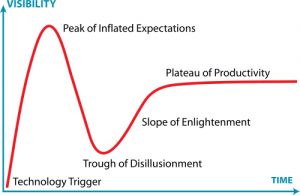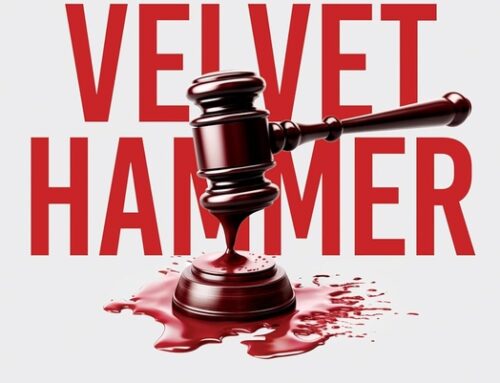It’s been a good run. 2011 was the year when self-publishing broke open with the successes of Amanda Hocking, John Locke, and JA Konrath. The stigma is gone. No one thinks a self-published book is bad just because it’s been self-published. But people are creative – there are some out there who actively want to dislike self-publishing, and will look for reasons to criticize. There are also plenty of people who still want to believe in the validation of a traditional publisher: if an agent and editor like it, I must be good. So now the stigma is not: self-published books are bad, but self-published books are hard to sell.
This post is so wrong it’s almost not worth linking to, but it’s an interesting sentiment with a provocative title: Self-Publishing is Over –
I’m not saying self-publishing doesn’t work. The fact that I’m spending my days building a 40′ ocean going catamaran is proof that it does, or at least that it did for me.
I am saying that it takes a very particular sort of person to do it, and that person has to be comfortable with the idea that they’re going to spend upwards of 75% of their time and effort doing things they (probably) regard as secondary to the creative act, and that there’s no (longer) special reward for undertaking the effort. The chances of your work being embraced by the market are not higher than going the tradition route; the return on your investment of time and effort (and in the case of movies, money) is not higher than going the traditional route.
And self-distro is certainly not the (much hyped) solution to the chaos and uncertainty that reigns in music or movies or publishing. It’s simply another route that might work, but probably won’t.
Perhaps with all the hype about self-publishing’s successes, people have gotten the impression that self-publishers think it’s easy to make it rich. But most know that self-publishing is hard. That doesn’t make it “over,” just…hard. As is releasing any book. And the argument’s so old but – traditionally published writers need to do a lot of work they didn’t used to do as well: social marketing, arranging book tours, etc. All publishing has elements of self-publishing.
That post was responding to another in The Atlantic:
One of the illusions most common to writers — an illusion that may make the long slow slog of writing possible, for many people — is that an enormous audience is out there waiting for the wisdom and delight that I alone can provide, and that the Publishing System is a giant obstacle to my reaching those people. Thus the dream that digital publishing technologies will indeed “disintermediate” — will eliminate that obstacle and connect me directly to what Bugs Bunny calls “me Public.” (See “Bully for Bugs”.) And we have heard just enough unexpected success stories to keep that dream alive.
Well, here’s hoping. But a couple of months ago I decided to dip my toes into these waters: I wrote a longish essay called “Reverting to Type” about my own history as a reader — a kind of personal epilogue to The Pleasures of Reading — and decided to submit it as a Kindle Single. Amazon wasn’t interested, so I decided to publish it myself using Kindle Direct Publishing. I announced its existence to the world: that is, I posted a link on my tumblelog and tweeted about it. A few people downloaded it; some pointed out typos that I had missed, but that a copy editor surely would have caught. I thought about ways to promote it better but haven’t been able to come up with anything other than becoming a self-promoting jerk on Twitter. Last time I checked it had sold 98 copies.
This reflects the narrative that self-publishing can lead to more failure than success. There are likely huge swaths of writers who are now taking self-publishing seriously who may have never before. They self-publish to the Kindle and – alas, nothing happens. I can share the frustration. I can’t claim to be an astounding success either. But the “new stigma” of self-publishing doesn’t make any more sense than the old one. In the past saying all self-published books are bad is like saying all people with brown hair are bad – seriously, it’s that dumb. And the new stigma that books won’t sell is also pretty myopic. We’re just at the beginning: e-readers are just now getting into people’s hands. Ten years from now, that Kindle single might sell more than 98 copies.
But it is understandable if people are disappointed if they don’t reach readers. The freedom to publish what you want doesn’t always outweigh the deflation that nobody’s reading it. But that experience doesn’t represent all of self-publishing any more than some terrible novel represents every Kindle book.
The Hype Cycle

Self-publishing, though, is still in the early stages of the Hype Cycle. The Technological Trigger in this case was Amazon’s Kindle Store which provides anyone with the ability to publish an ebook and gain access, theoretically, to a massive market of avid readers. The explosion in ereaders that people actually want to buy and read on, the expansion into ebook sales by vendors such as Barnes & Noble, and the development of ebook tools have all made the technical side of publishing an ebook almost trivially easy.
And it is this ease that has attracted vast numbers of people to take a punt on becoming an author. The success of edge cases such as Amanda Hocking and John Locke serve only to fuel the hopes of hundreds of thousands of people who want to repeat their success. Writers, like bloggers before them, are throwing themselves at self-publishing with expectations that simply can’t be met by reality. Like gamblers who see someone else getting a massive payout, they think that all they need to do to win is to play the game.
But anyone taking an objective view of self-publishing can see that it shows every sign of reaching the Peak of Inflated Expectations. And that can mean only one thing: Soon it will take that inevitable, unavoidable tumbling slide down into the Trough of Disillusionment. Just because new tools make the technical aspects of something easy doesn’t mean that the creative side of it becomes easy too.
Everything she says is true. It’s just that self-publishing was so recently the armpit of the publishing world that you could see people quickly falling back into old habits. A chorus of gloaters saying, “See? I told you self-publishing was bad!”
This will happen. However, it won’t stick the same way that the old stigma stuck for decades because e-readers are going to become more entrenched in everyday life. I’m waiting for the time when Walgreen’s sells e-readers for $15 the way you can find a cheap CD player. This will also happen. And while it will still be difficult to find readers, so much of publishing will be via ebooks that you won’t be able to blame self-publishing for the shortfall. It’s just hard to sell books. If you’re going to blame self-publishing that it’s hard to sell books, you may as well blame traditional publishers as well – because they’re facing the same market.
Get an Editorial Review | Get Amazon Sales & Reviews | Get Edited | Get Beta Readers | Enter the SPR Book Awards | Other Marketing Services






















Great post! As a self-published author, I never jumped in because I thought it would be easy. My corporate media background had taught me enough about distribution channels and marketing to know the challenges. But I find it increasingly hilarious how those in the traditional world continue to find 1001 reasons why self-publishing is over when it is just getting started. But that’s what happens when change occurs. The group not part of the change tries desperately to hold on to what was, thinking that will stop the tide.
I found The Hype Cycle article interesting, but comparing blogging with self-publishing might be a bit off the mark. Blogging was an entirely new internet creation – you could never have sold your diary-in-progress before, and the money to be made from it is largely in ads and click-throughs – nothing at all like books or the history of bookselling. Nor is self-publishing a monolithic prospect. I think we can already see that certain genres – romance and erotica come to mind – are likely to sell better than others and perhaps even better than they ever did in physical book form, erotica especially! Other types of books are never going to do well in ebook form (coffee table books, for example).
Also, the overall picture of people jumping in hoping to get-rich-quick and then having that overgrowth die off is natural in any kind of gold-rush scenario – you hardly need a theory like ‘The Hype Cycle’ or some fancy chart to figure that out. Just check out the classic book ‘Extraordinary Popular Delusions and the Madness of Crowds’ (free from Project Gutenberg – http://www.gutenberg.org/ebooks/24518 ) …
What’s classic here is the irony of people jumping on the “bash self-publishing’ bandwagon while it still sells magazine articles! Let’s watch that hype cycle hit the doldrums in due course :}
You said it, Henry: “It’s just hard to sell books.” Despite that “Trough of Disillusionment,” though, this independent author isn’t giving up.
Interesting piece. I’m planning to self-publish this year and don’t have any expectations of a runaway commercial success, but feel it’s better than the book sitting on my hard drive for just a handful of friends to have access to a Word doc or printed copy.
Also, I can see that self-publishing gives authors the chance to take advanatge of a trend similar to that in the music industry over recent years – making it possible for artists to get their work out there without major backing and build a following online.
I don’t expect it to be easy or to have any guarantee of success, but for someone who’s spent years trying to get published through the traditional route with no success, it offers something positive.
My wife and I have been self-publishing for several years. When we first started out, we would have been thrilled to sell 98 copies of one of our books in a couple of months like the author of the article in the Atlantic. We were lucky to sell 5 copies a month. But we kept at it and have published 20 books now and they still only average about 100 copies a month. Well guess what: 20 x 100 x $2.09 (70% of 2.99) in royalties equals $4180 a month. Not exactly Amanda Hocking territory, but all of our hard work is paying off. I guess maybe we have made it to the plateau of productivity!
And my wife was published by several traditional publishers in the past, but they all managed to not sell many books. So for us, self-publishing is a no-brainer!
https://www.smashwords.com/profile/view/Nirmala
https://www.smashwords.com/profile/view/GinaLake
As someone who first self-published in 1987 and has been thoroughly immersed in “indie publishing” long before that term was coined, I can tell you firsthand that — really — nothing has changed in terms of what it takes to succeed. The secret, and only secret, is work. You work at it. The times may change and the tools may change, but beneath it all is just plain work.
The process for getting a book out to the world has changed immensely, and self-publishing has largely shed its longtime stigman, but it still all comes down to gaining the attention of your intended audience. And although there are many more ways to do this in 2012 vs. 1987, anyone’s intended audience is also far more overwhelmed with information than ever before. The term “attention economy” is very apt. What we self-publishers have effectively traded is the monetary cost of our venture (e.g., expensive print runs; paying for classified ads and selling via mail order) for time cost (e.g., hours on social media; slowly building an email list).
But there’s no way on earth I would trade self-publishing today for what it was 25 years ago. As others have pointed out, we’re only seeing the beginning of an amazing time to be able to create and publish our works to a worldwide audience.
*longtime stigma (what the heck is a “stigman”?)